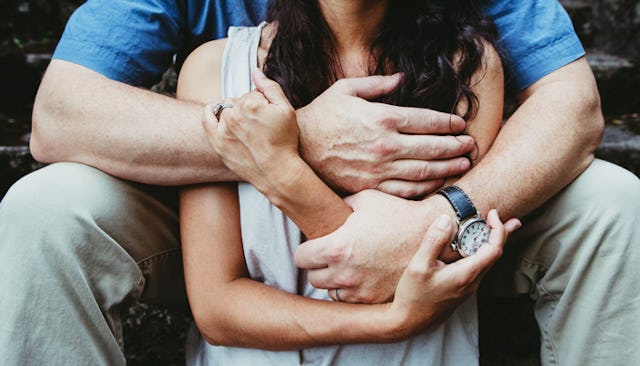What Happened When I Started Talking Publicly About My Abortion

When I was 20 years old, I got pregnant. For the first eleven weeks, I pretended it wasn’t happening. I made excuses for my missed periods. I rushed past pregnancy tests at the drugstore. I refused to acknowledge the changes in my body. If I did nothing, maybe it would all just go away. The one thing I couldn’t escape was a growing sense of dread. For two nights in a row, I was stalked in my dreams by a man with a cage for a mouth.
Finally, I told someone I trusted and loved. She was crushed, both for me and for the potential life inside me, but she helped arrange for an abortion, drove me to the appointment and cared for me afterward.
That was 24 years ago. Since then, I haven’t hidden the fact, but I haven’t broadcast it, either. I can count on both hands the number of people who knew. Although it had been the right choice for me and for my future family, I felt it was a private matter.
Then last month, I read Katha Pollitt’s essay in The New York Times, “How to Really Defend Planned Parenthood.” She pointed out that nearly 1 in 3 American women—1 in 3—has had a termination, and yet we rarely hear their individual stories. Pollitt called for everyone who has benefitted from the legal right to an abortion to start sharing our experiences, both women and men.
So I did. I posted on Facebook that I had terminated a pregnancy when I was younger and that I was grateful to Planned Parenthood for providing essential services to people from all walks of life. The post took seconds to appear, but I wrestled with the decision for days beforehand. While it was my story to tell, I knew the telling of it could affect my family. I talked over the possibility with my husband and shared my anxiety about going public, of how I dreaded being vilified and worried about the impact on those closest to me.
We also talked about why I might be ready to come forward. I felt that I’d been reckless and irresponsible getting pregnant when I wasn’t ready to be a mother, but I’d also been incredibly lucky—lucky to live in a country where abortion is legal and safe. Lucky to live in a state with accessible and compassionate providers. Lucky to be able to figure out how to pay for care.
At this point in my life, staying silent about my abortion felt like a betrayal of other women who haven’t been as fortunate but who have felt just as desperate as I did when I was 20. My husband listened, and nodded, and said, “It sounds like you really want to talk about it.” His simple, sensitive statement made me realize that despite my misgivings about the consequences, yes, I did want to talk about it.
The response to my Facebook post was overwhelmingly supportive. I was bolstered by long-time friends, understanding family members, and in a short note that both surprised and moved me, the father of my best friend from sixth grade. Then, someone I knew in high school—he’d been in the class above me—added a comment, and I felt my heart sink. I’d always liked him, but we’d never spent significant amounts of time together, and I had no idea about his ideological leanings. I took a deep breath and started reading.
It was clear we didn’t agree on the overall issue of abortion. He wrote about his opposition to government funding and to late-term abortions in general. What struck me, though, was his tone. I’d dreaded being personally attacked, and here he was, someone I knew from long ago, sharing his thoughts in exactly the same way that I remembered him to be: sincere, earnest and warm.
I’m so grateful to him for his comment. He reminded me that while the shrillest voices garner the most coverage, there are genuine discussions to be had beneath the noise. Speaking out about a personal experience with abortion is not without its risks, but each time we do it, we invite the possibility of a real conversation, even with those who vehemently disagree with our decision.
Having that kind of frank, open, compassionate discussion is only possible when all of us, no matter where we fall on the issue, feel safe revealing our true identities. Too often, comment sections on abortion stories are filled with vitriol and hate from posters from across the political spectrum who hide behind pseudonyms. If we have something to say about abortion—especially if calling into question someone else’s values, intelligence or integrity—we should have the courage and the decency to say it under our own, full names.
At 20, I couldn’t have imagined speaking publicly about my private misery. Today, I wish I could sit beside that paralyzed and panicked younger self. I’d tell her that impossible as it might seem, someday in the future, she’d be able to talk about it. Someday, someone would hear her story and try to understand it.
This article was originally published on